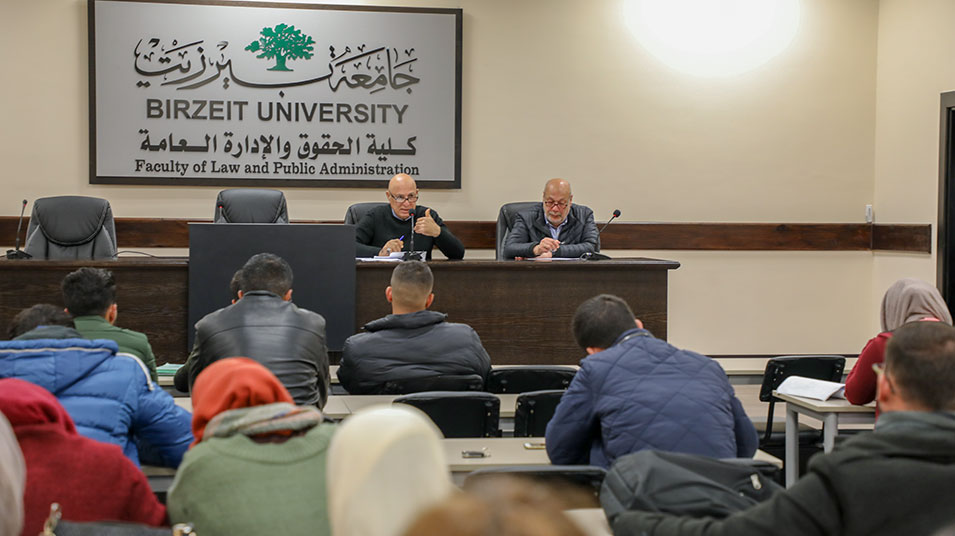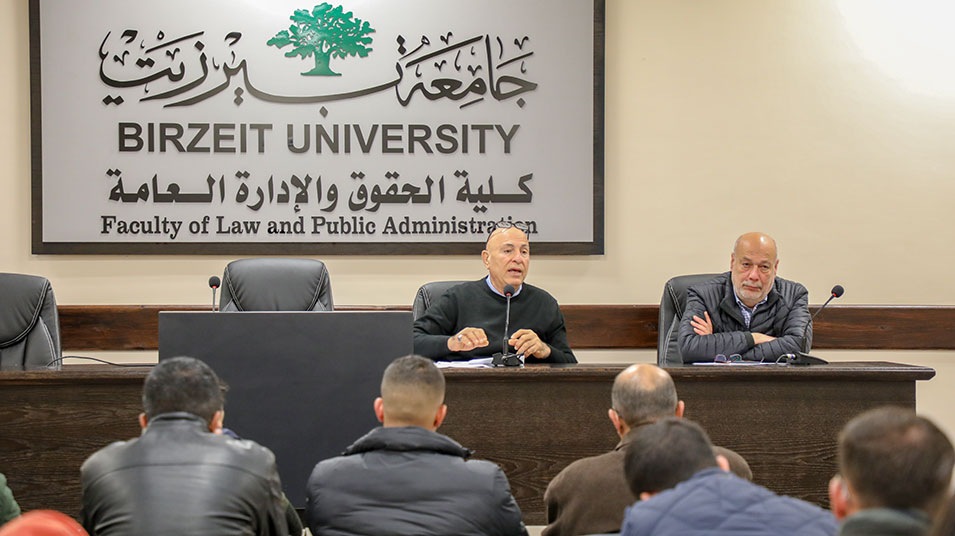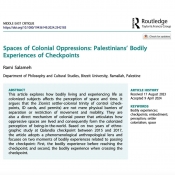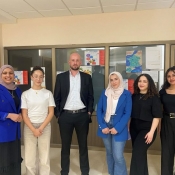Students, political science experts analyze results of 2019 Israeli Knesset elections, impact on Palestinian independence
Political science students discussed the results of the recently-held Israeli parliamentary elections in a lecture led by Saleh Abd al-Jawad, a Palestinian political science expert and historian, on Monday, April 22, 2019.
In this lecture, organized by Birzeit University’s Department of Political Science, Abd al-Jawad focused on why Israelis voted as they did and assessed the effect of the election outcome on the Palestinian quest for independence.
Abd al-Jawad noted that the 2019 legislative elections have shown the increased entrenchment of right-wing parties in Israel, a trend that began in 1977 when the right-wing Likud party won a plurality of seats in the Knesset, ending 30 years of left-wing rule.
In the 2019 elections, Abd al-Jawad continued, ultra-Orthodox religious parties made huge gains, with Shas and United Torah Judaism each securing eight seats. The Labour party, however, only secured six seats − an unprecedented loss, Abd al-Jawad added. Overall, right-wing parties secured 65 seats while left-wing parties won only 45 seats.
Explaining why Blue and White, the political alliance established to run in the 2019 elections, was not able to secure more seats, Abd al-Jawad noted that the party failed to present a unified political platform. He pointed out that the alliance, while sharing the goal of dethroning Benjamin Netanyahu, faced a multitude of obstacles due to discord over many political issues among its members.
Abd al-Jawad highlighted the Israeli army’s engagement in the elections, through support of the Blue and White alliance, as a new phenomenon that underscores the army’s frustration with Netanyahu’s disregard for the freedom of speech and media, subversion of the judiciary, and exploitation of the army for political gains.
Abd al-Jawad attributed he losses that Arab parties suffered in these elections to to the widespread abstention of their constituencies adding that the turnout among Arab voters in 2015 was 63 percent, as opposed to 52 percent in 2019.
Discussing the elections’ impact on the Palestinian quest for independence, Abd al-Jawad predicted that Netanyahu will continue his policy of subverting the Palestinian authority and of undercutting prospects to achieve the two-state solution.
Abderrahman Ibrahim, a professor of political science and chair of the lecture, said that the discord among Palestinians only serves to weaken them politically and noted that the Israeli legislative elections are an extension of the overarching political context in the United States. He highlighted Donald Trump’s recognition of Israel’s annexation of the Golan Heights as an act of political propaganda that aimed to support Netanyahu’s reelection bid.








